- Home
- Nora Roberts
Sanctuary Page 10
Sanctuary Read online
Page 10
Nathan’s head began to throb, fast and vicious. “My father?”
“I dogged him like a shadow, pestered him mercilessly about how he took pictures, why he took the ones he did, how the camera worked. He was so patient with me. I must have been driving him crazy, interrupting his work that way, but he never shooed me away. He taught me so much, not just the basics but how to look and how to see. I suppose I owe him for every photograph I’ve ever taken.”
The breakfast he’d just eaten churned greasily in his stomach. “You’re a professional photographer?”
“Jo’s a big-deal photographer,” Lexy said with a bite in her voice as she came back in. “The globe-trotting J. E. Hathaway, snapping her pictures of other people’s lives as she goes. Two omelettes, Brian, two sides of hash browns, one bacon, one sausage. Room 201’s having breakfast, Miss World Traveler. You’ve got beds to strip.”
“Exit, stage left,” Jo murmured when Lexy strode out again. “Yes,” she said, turning back to Nathan. “Thanks in large part to David Delaney, I’m a photographer. If it hadn’t been for Mr. David, I might be as frustrated and pissed off at the world as Lexy. How is your father?”
“He’s dead,” Nathan said shortly and pushed himself up from the stool. “I’ve got to get back. Thanks for breakfast, Brian.”
He went out fast, letting the screen door slam behind him.
“Dead? Bri?”
“An accident,” Brian told her. “About three months ago. Both his parents. And he lost his brother about a month later.”
“Oh, God.” Jo ran a hand over her face. “I put my foot in that. I’ll be back in a minute.”
She set the mug down and raced out the door to chase Nathan down. “Nathan! Nathan, wait a minute.” She caught him on the shell path that wound through the garden toward the trees. “I’m sorry.” She put a hand on his arm to stop him. “I’m so sorry I went on that way.”
He pulled himself in, fought to think clearly over the pounding in his temples. “It’s all right. I’m still a little raw there.”
“If I’d known—” She broke off, shrugged her shoulders helplessly. She’d likely have put her foot in it anyway, she decided. She’d always been socially clumsy.
“You didn’t.” Nathan clamped down on his own nerves and gave the hand still on his arm a light squeeze. She looked so distressed, he thought. And she’d done nothing more than accidentally scrape an open wound. “Don’t worry about it.”
“I wish I’d managed to keep in touch with him.” Her voice went wistful now. “I wish I’d made more of an effort so I could have thanked him for everything he did for me.”
“Don’t.” He bit the word off, swung around to her with his eyes fierce and cold. “Thanking someone for where your life ended up is the same as blaming them for it. We’re all responsible for ourselves.”
Uneasy, she backed off a step. “True enough, but some people influence what roads we take.”
“Funny, then, that we’re both back here, isn’t it?” He stared beyond her to Sanctuary, where the windows glinted in the sun. “Why are you back here, Jo?”
“It’s my home.”
He looked back at her, pale cheeks, bruised eyes. “And that’s where you come when you feel beat up and lost and unhappy?”
She folded her arms across her chest as if chilled. She, usually the observer, didn’t care to be observed quite so clear-sightedly. “It’s just where you go.”
“It seems we decided to come here at almost the same time. Fate? I wonder—or luck.” He smiled a little because he was going to go with the latter.
“Coincidence.” She preferred it. “Why are you back here?”
“Damned if I know.” He exhaled between his teeth, then looked at her again. He wanted to soothe that sorrow and worry from her eyes, hear that laugh again. He was suddenly very certain it would ease his soul as much as hers. “But since I am, why don’t you walk me back to the cottage?”
“You know the way.”
“It’d be a nicer walk with company. With you.”
“I told you I’m not interested.”
“I’m telling you I am.” His smile deepened as he reached up to tuck a stray lock of hair behind her ear. “It’ll be fun seeing who nudges who to the other side.”
Men didn’t flirt with her. Ever. Or not that she had ever noticed. The fact that he was doing just that, and she noticed, only irritated her. The inherent Pendleton Fault Line dug between her brows. “I’ve got work to do.”
“Right. Bed stripping in 201. See you around, Jo Ellen.”
Because he turned away first, she had the opportunity to watch him walk into the trees. Deliberately she shook her hair so that it fell over her ears again. Then she rolled her shoulders as if shrugging off an unwelcome touch.
But she was forced to admit she was already more interested than she wanted to be.
SEVEN
NATHAN took a camera with him. He felt compelled to retrace some of his father’s footsteps on Desire—or perhaps to eradicate them. He chose the heavy old medium-range Pentax, one of his father’s favorites and surely, he thought, one that David Delaney had brought to the island with him that summer.
He would have brought the bulky Hasselblad view camera as well, and the clever Nikon, along with a collection of lenses and filters and a mountain of film. Nathan had brought them all, and they were neatly stored, as his father had taught him, back at the cottage.
But when his father hiked out to hunt a shot, he would most usually take the Pentax.
Nathan chose the beach, with its foaming waves and diamond sand. He slipped on dark glasses against the fierce brilliance of the sun and climbed onto the marked path between the shifting dunes, with their garden of sea oats and tangle of railroad vines. The wind kicked in from the sea and sent his hair flying. He stood at the crest of the path, listening to the beat of the water, the smug squeal of gulls that wheeled and dipped above it.
Shells the tide had left behind were scattered like pretty toys along the sand. Tiny dunes whisked up by the wind were already forming behind them. The busy sanderlings were rushing back and forth in the spume, like businessmen hustling to the next meeting. And there, just behind the first roll of water, a trio of pelicans flew in military formation, climbing and wheeling as a unit. One would abruptly drop, a dizzying headfirst dive into the sea, and the others would follow. A trio of splashes, then they were up again, breakfast in their beaks.
With the ease of experience, Nathan lifted his camera, widened the aperture, increased the shutter speed to catch the motion, then homed in on the pelicans, following, following as they skimmed the wave crests, rose into their climb. And capturing them on the next bombing dive.
He lowered the camera, smiled a little. Over the years he’d gone long stretches of time without indulging in his hobby. He planned to make up for it now, spending at least an hour a day reacquainting himself with the pleasure and improving his eye.
He couldn’t have asked for a more perfect beginning. The beach was inhabited only by birds and shells. His footprints were the only ones to mar the sand. That was a miracle in itself, he thought. Where else could a man be so entirely alone, borrow for a while this kind of beauty, along with peace and solitude?
He needed those things now. Miracles, beauty, peace. Cupping a hand over the camera, Nathan walked down the incline to the soft, moist sand of the beach. He crouched now and then to examine a shell, to trace the shape of a starfish with a fingertip.
But he left them where he found them, collecting them only on film.
The air and the exercise helped settle the nerves that had jangled before he’d left Sanctuary. She was a photographer, Nathan thought, as he studied a pretty, weather-silvered cottage peeking out from behind the dunes. Had his father known that the little girl he’d played mentor to one summer had gone on to follow in his footsteps? Would he have cared? Been proud, amused?
He could remember when his father had first shown him the workings of a came
ra. The big hands had covered his small ones, gently, patiently guiding. The smell of aftershave on his father’s cheeks, a sharp tang. Brut. Yes, Brut. Mom had liked that best. His father’s cheek had been smoothly shaven, pressed against his. His dark hair would have been neatly combed, smooth bumps of waves back from the forehead, his clear gray eyes soft and serious.
Always respect your equipment, Nate. You may want to make a living from the camera one day. Travel the world on it and see everything there is to see. Learn how to look and you’ll see more than anyone else. Or you’ll be something else, do something else, and just use it to take moments away with you. Vacations, family. They’ll be your moments, so they’ll be important. Respect your equipment, learn to use it right, and you’ll never lose those moments.
“How many did we lose, anyway?” Nathan wondered aloud. “And how many do we have tucked away that we’d be better off losing?”
“Excuse me?”
Nathan jerked when the voice cut through the memory, when a hand touched his arm. “What?” He took a quick step in retreat, half expecting one of his own ghosts. But he saw a pretty, delicately built blonde staring up at him through amber-tinted lenses.
“Sorry. I startled you.” She tilted her head, and her eyes stayed focused, unblinking, on his face. “Are you all right?”
“Yeah.” Nathan dragged a hand through his hair, ignored the uncomfortably loose sensation in his knees. Less easily ignored was the acute embarrassment as the woman continued to study him as if he were some alien smear on a microscope slide. “I didn’t know anyone else was around.”
“Just finishing up my morning run,” she told him, and he noted for the first time that she wore a sweat-dampened gray T-shirt over snug red bike shorts. “That’s my cottage you were staring at. Or through.”
“Oh.” Nathan ordered himself to focus on it again, the silvered cedar shakes, the sloping brown roof with its jut of open deck for sunning. “You’ve got a hell of a view.”
“The sunrises are the best. You’re sure you’re all right?” she asked again. “I’m sorry to poke, but when I see a guy standing alone on the beach looking as if he’d just been slapped with a two-by-four and talking to himself, I’ve got to wonder. It’s my job,” she added.
“Beach police?” he said dryly.
“No.” She smiled, held out a friendly hand. “Doctor. Doctor Fitzsimmons. Kirby. I run a clinic out of the cottage.”
“Nathan Delaney. Medically sound. Didn’t an old woman used to live there? A tiny woman with white hair up in a bun.”
“My grandmother. Did you know her? You’re not a native.”
“No, no, I remember, or have this impression of her. I spent a summer here as a kid. Memories keep popping out at me. You just walked into one.”
“Oh.” The eyes behind the amber lenses lost their clinical shrewdness and warmed. “That explains it. I know just what you mean. I spent several summers here growing up, and memories wing up at me all the time. That’s why I decided to relocate here when Granny died. I always loved it here.”
Absently, she grabbed her toe, bending her leg back, heel to butt, to stretch out. “You’d be the Yankee who’s taken Little Desire Cottage for half a year.”
“Word travels.”
“Doesn’t it just? Especially when it doesn’t have far to go. We don’t get many single men renting for six months. A number of the ladies are intrigued.” Kirby repeated the process on the other leg. “You know, I think I might remember you. Wasn’t it you and your brother who palled around with Brian Hathaway? I remember Granny saying how those Delaney boys and young Brian stuck together like a dirt clod.”
“Good memory. You were here that summer?”
“Yes, it was my first summer on Desire. I suppose that’s why I remember it best. Have you seen Brian yet?” she asked casually.
“He just fixed me breakfast.”
“Magic in an egg.” It was Kirby’s turn to look past the cottage, beyond it. “I heard Jo’s back. I’m going to try to get up to the house after the clinic closes today.” She glanced at her watch. “And since it opens in twenty minutes, I’d better go get cleaned up. It was nice seeing you again, Nathan.”
“Nice seeing you. Doc,” he added as she began to jog toward the dunes.
With a laugh, she turned, jogged backward. “General practice,” she called out. “Everything from birth to earth. Come in for what ails you.”
“I’ll keep it in mind.” He smiled and watched her ponytail swing sassily as she ran through the valley between the dunes.
Nineteen minutes later, Kirby put on a white lab coat over her Levi’s. She considered the coat a kind of costume, designed to reassure the reluctant patient that she was indeed a doctor. That and the stethoscope tucked in its pocket gave the islanders the visual nudge many of them needed to let Granny Fitzsimmons’s little girl poke into their orifices.
She stepped into her office, formerly her grandmother’s well-stocked pantry off the kitchen. Kirby had left one wall of shelves intact, to hold books and papers and the clever little combo fax and copy machine that kept her linked with the mainland. She’d removed the other shelves, since she had no plans to follow her grandmother’s example and put by everything from stewed tomatoes to watermelon pickles.
She’d muscled the small, lovingly polished cherrywood desk into the room herself. It had traveled with her from Connecticut, one of the few pieces she’d brought south. It was outfitted with a leatherframed blotter and appointment book that had been a parting gift from her baffled parents.
Her father had grown up on Desire and considered himself fortunate to have escaped.
She knew both of her parents had been thrilled when she’d decided to follow in her father’s footsteps and go into medicine. And they had assumed she would continue to follow, into his cardiac surgery specialty, into his thriving practice, and right along to the platinum-edged lifestyle both of them so enjoyed.
Instead she’d chosen family practice, her grandmother’s weather-beaten cottage, and the simplicity of island life.
She couldn’t have been happier.
Tidily arranged with the appointment book that bore her initials in gold leaf were a snazzy phone system with intercom—in the unlikely event that she should ever need an assistant—and a Lucite container of well-sharpened Ticonderoga pencils.
Kirby had spent her first few weeks of practice doing little more than sharpening pencils and wearing them down again by doodling on the blotter.
But she’d stuck, and gradually she’d begun to use those pencils to note down appointments. A baby with the croup, an old woman with arthritis, a child spiking a fever with roseola.
It had been the very young or the very old who’d trusted her first. Then others had come to have their stitches sewn, the aches tended, their stomachs soothed. Now she was Doc Kirby, and the clinic was holding its own.
Kirby scanned her appointment book. An annual gyn, a follow-up on a nasty sinus infection, the Matthews boy had another earache, and the Simmons baby was due in for his next immunizations. Well, her waiting room wasn’t going to be crowded, but at least she’d keep busy through the morning. And who knew, she thought with a chuckle, there could be a couple of emergencies to liven up the day.
Since Ginny Pendleton was her gyn at ten o’clock, Kirby calculated she had at least another ten minutes. Ginny was invariably late for everything. Pulling the necessary chart, she stepped back into the kitchen, poured the last of the coffee from the pot she’d made early that morning, and took it with her to the examining room.
The room where she’d once dreamed away summer nights was now crisp and clean. She had posters of wildflowers on the white walls rather than the pictures of nervous systems and ear canals that some doctors decorated with. Kirby thought they made patients jumpy.
After sliding the chart into the holder inside the door, she took out one of the backless cotton gowns—she thought paper gowns humiliating—and laid it out on the foot of the examin
ing table. She hummed along with the quiet Mozart sonata from the stereo she’d switched on. Even those who eschewed classical would invariably relax to it, she’d found.
She’d arranged everything she’d need for the basic yearly exam and had finished off her coffee when she heard the little chime that meant the door at the clinic entrance had opened.
“Sorry, sorry,” Ginny came in on the run as Kirby stepped into the living room that served as the waiting area. “The phone rang just as I was leaving.”
She was in her middle twenties, and Kirby was continually telling her that her fondness for the sun was going to haunt her in another ten years. Her hair was white-blond, shoulder-length, frizzed mercilessly, and crying out for a root job.
Ginny came from a family of fishermen, and though she could pilot a boat like a grinning pirate, clean a fish like a surgeon, and shuck oysters with dizzying speed and precision, she preferred working at the Heron Campground, helping the novice pitch a tent, assigning sites, keeping the books.
For her doctor’s appointment, she’d spruced herself up with one of her favored western shirts in wild-plum purple with white fringe. Kirby wondered with idle curiosity how many internal organs were gasping for oxygen beneath the girdle-tight jeans.
“I’m always late.” Ginny sent her a sunny, baffled smile that made Kirby laugh.
“And everyone knows it. Go ahead in and pee in the bottle first. You know the routine. Then go into the exam room. Take everything off, put the gown on opening to the front. Just give a holler when you’re ready.”

 A Little Magic
A Little Magic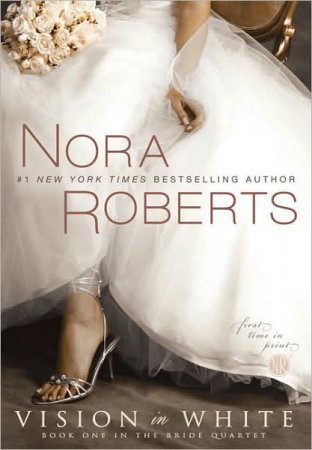 Vision in White
Vision in White True Betrayals
True Betrayals The Next Always
The Next Always A Man for Amanda
A Man for Amanda Born in Fire
Born in Fire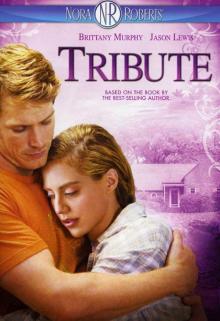 Tribute
Tribute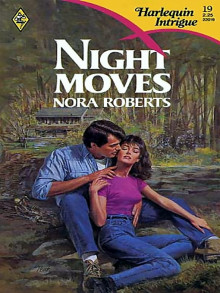 Night Moves
Night Moves Dance Upon the Air
Dance Upon the Air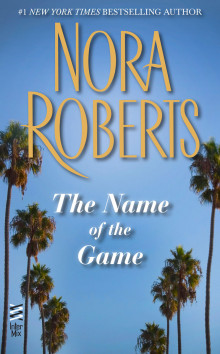 The Name of the Game
The Name of the Game Jewels of the Sun
Jewels of the Sun River's End
River's End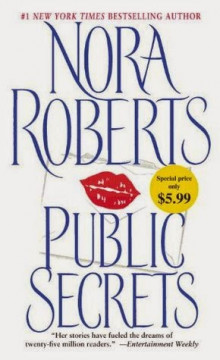 Public Secrets
Public Secrets Homeport
Homeport Private Scandals
Private Scandals The Witness
The Witness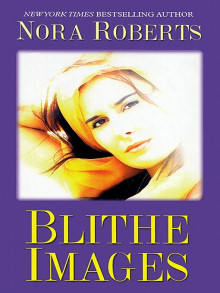 Blithe Images
Blithe Images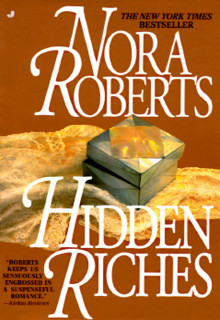 Hidden Riches
Hidden Riches Key of Light
Key of Light Divine Evil
Divine Evil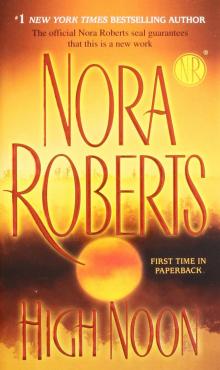 High Noon
High Noon Blue Dahlia
Blue Dahlia Sea Swept
Sea Swept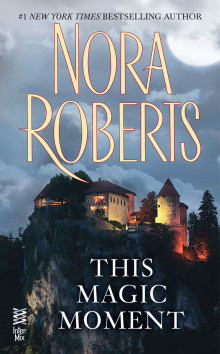 This Magic Moment
This Magic Moment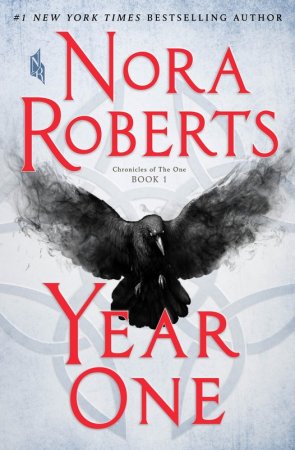 Year One
Year One A Little Fate
A Little Fate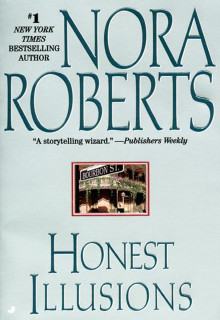 Honest Illusions
Honest Illusions The Reef
The Reef Shelter in Place
Shelter in Place The Hollow
The Hollow Holding the Dream
Holding the Dream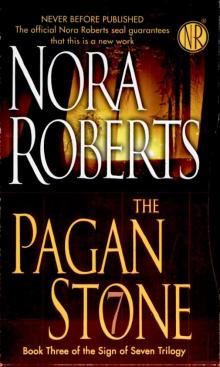 The Pagan Stone
The Pagan Stone Savour the Moment
Savour the Moment The Perfect Hope
The Perfect Hope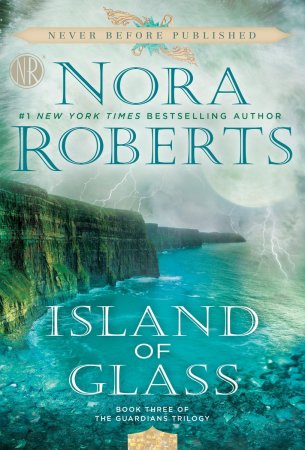 Island of Glass
Island of Glass Happy Ever After
Happy Ever After Bed of Roses
Bed of Roses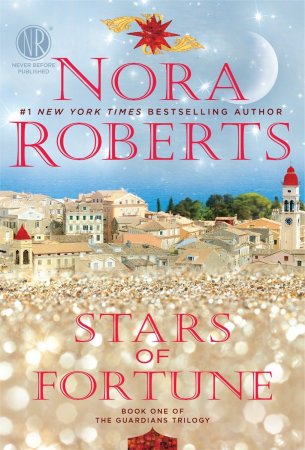 Stars of Fortune
Stars of Fortune Dark Witch
Dark Witch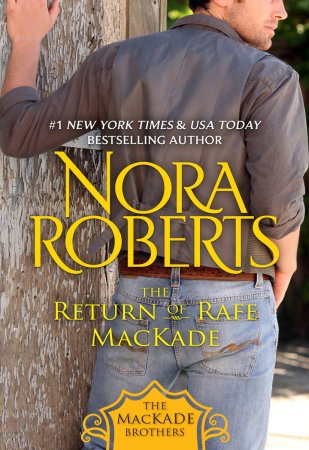 The Return of Rafe MacKade
The Return of Rafe MacKade Chesapeake Blue
Chesapeake Blue The Perfect Neighbor
The Perfect Neighbor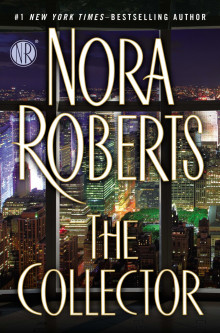 The Collector
The Collector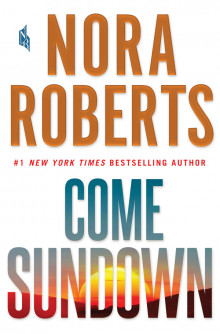 Come Sundown
Come Sundown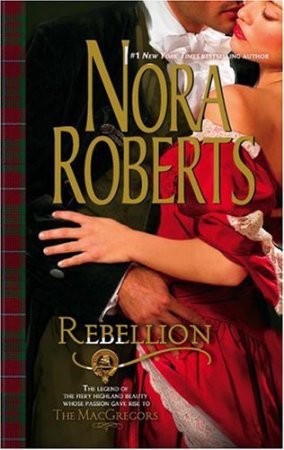 Rebellion
Rebellion Affaire Royale
Affaire Royale Daring to Dream
Daring to Dream Bay of Sighs
Bay of Sighs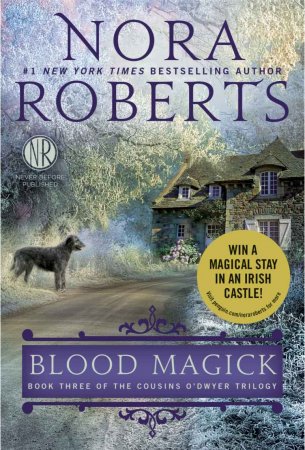 Blood Magick
Blood Magick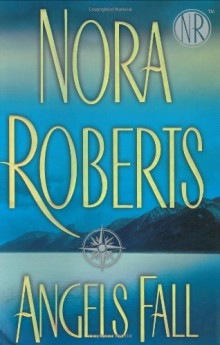 Angels Fall
Angels Fall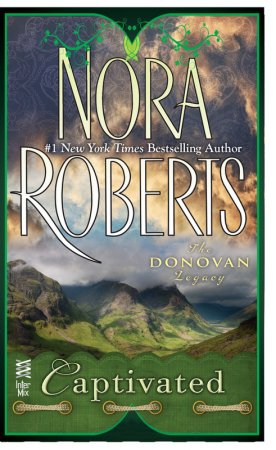 Captivated
Captivated The Last Boyfriend
The Last Boyfriend Irish Thoroughbred
Irish Thoroughbred Inner Harbor
Inner Harbor The Right Path
The Right Path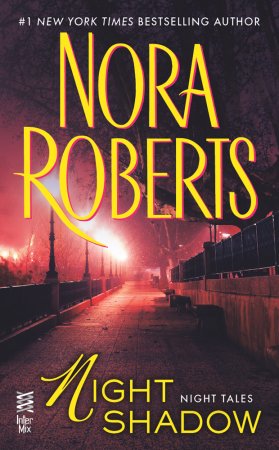 Night Shadow
Night Shadow The Heart of Devin MacKade
The Heart of Devin MacKade Shadow Spell
Shadow Spell The Playboy Prince
The Playboy Prince The Fall of Shane MacKade
The Fall of Shane MacKade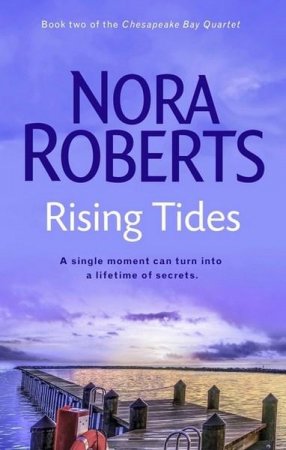 Rising Tides
Rising Tides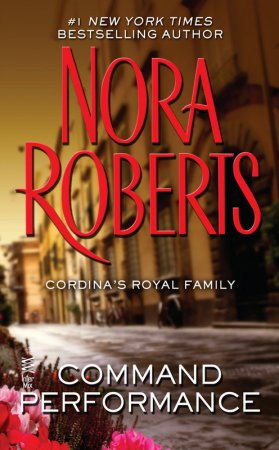 Command Performance
Command Performance Hidden Star
Hidden Star Cordina's Crown Jewel
Cordina's Crown Jewel The MacGregor Brides
The MacGregor Brides The Pride of Jared MacKade
The Pride of Jared MacKade Born in Ice
Born in Ice Whiskey Beach
Whiskey Beach The Last Honest Woman
The Last Honest Woman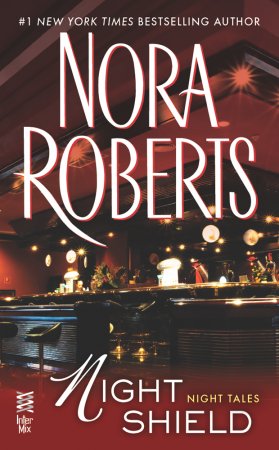 Night Shield
Night Shield Born in Shame
Born in Shame Secret Star
Secret Star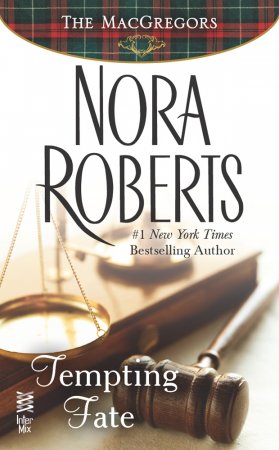 Tempting Fate
Tempting Fate Nightshade
Nightshade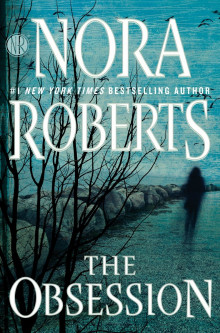 The Obsession
The Obsession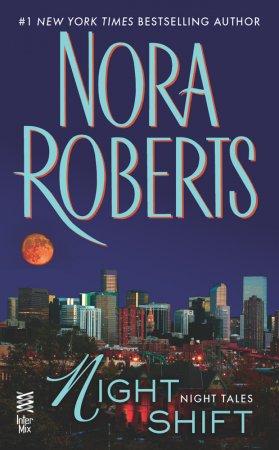 Night Shift
Night Shift Playing The Odds
Playing The Odds Tears of the Moon
Tears of the Moon One Man's Art
One Man's Art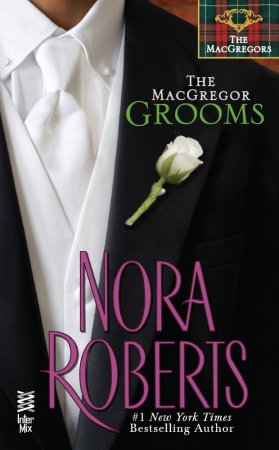 The MacGregor Groom
The MacGregor Groom Irish Rebel
Irish Rebel Morrigan's Cross
Morrigan's Cross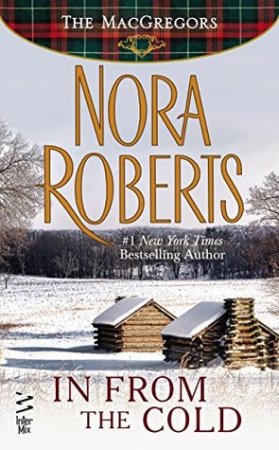 In From The Cold
In From The Cold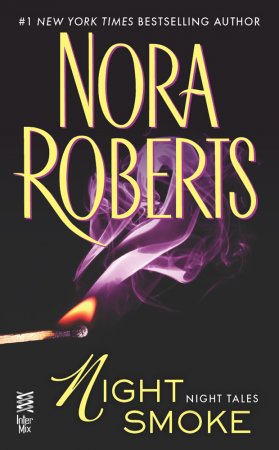 Night Smoke
Night Smoke Finding the Dream
Finding the Dream Red Lily
Red Lily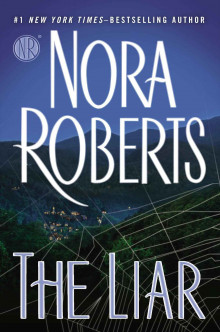 The Liar
The Liar Montana Sky
Montana Sky Heart of the Sea
Heart of the Sea All The Possibilities
All The Possibilities Opposites Attract
Opposites Attract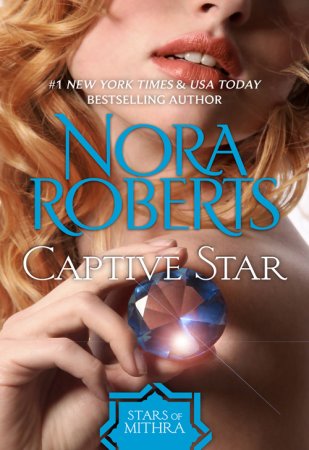 Captive Star
Captive Star The Winning Hand
The Winning Hand Key of Valor
Key of Valor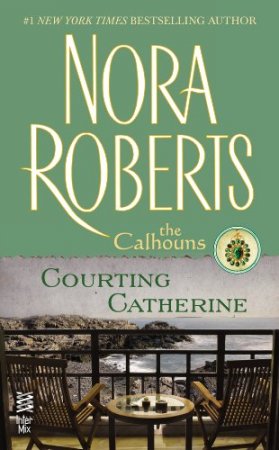 Courting Catherine
Courting Catherine Heaven and Earth
Heaven and Earth Face the Fire
Face the Fire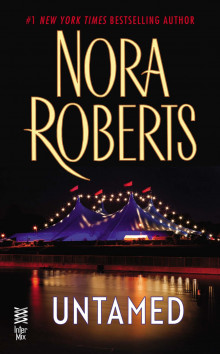 Untamed
Untamed Skin Deep
Skin Deep Enchanted
Enchanted Song of the West
Song of the West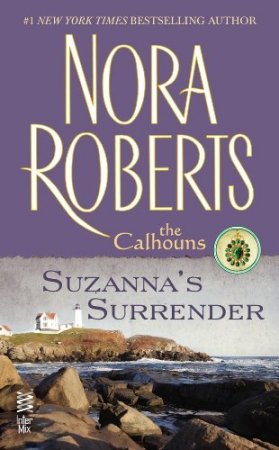 Suzanna's Surrender
Suzanna's Surrender Entranced
Entranced Dance of the Gods
Dance of the Gods Key of Knowledge
Key of Knowledge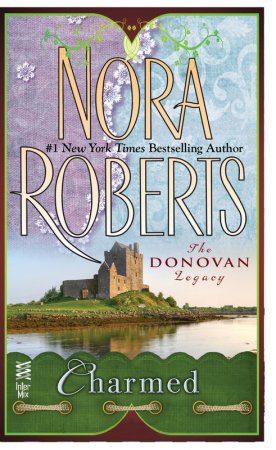 Charmed
Charmed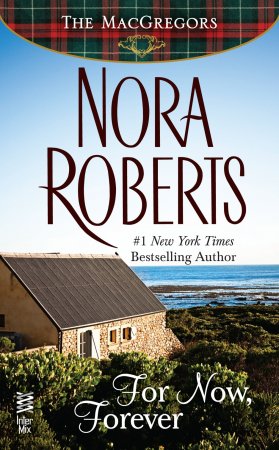 For Now, Forever
For Now, Forever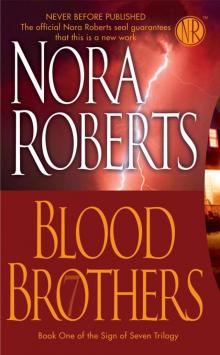 Blood Brothers
Blood Brothers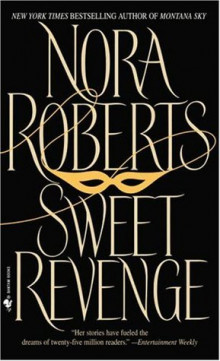 Sweet Revenge
Sweet Revenge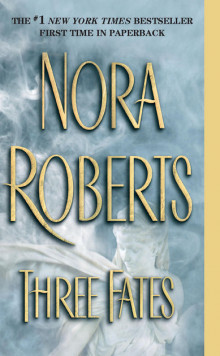 Three Fates
Three Fates Mind Over Matter
Mind Over Matter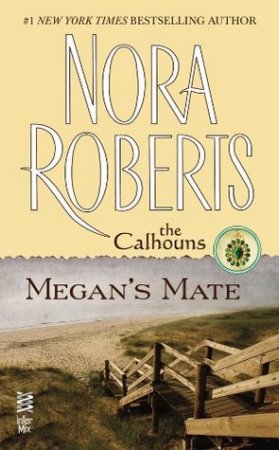 Megan's Mate
Megan's Mate Valley of Silence
Valley of Silence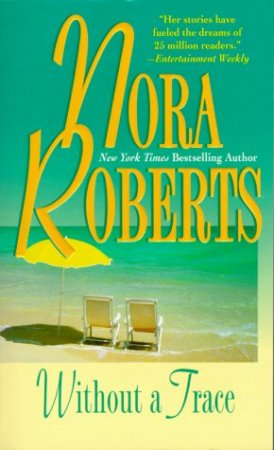 Without A Trace
Without A Trace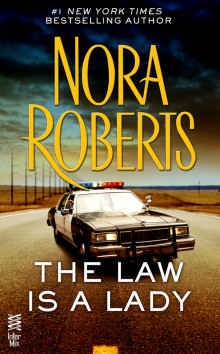 The Law is a Lady
The Law is a Lady Temptation
Temptation Dance to the Piper
Dance to the Piper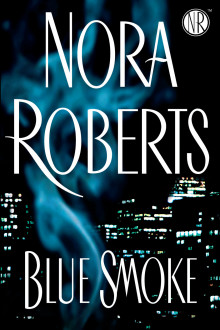 Blue Smoke
Blue Smoke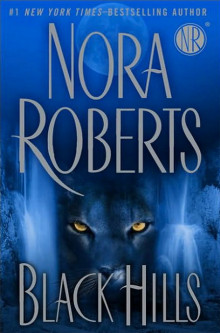 Black Hills
Black Hills The Heart's Victory
The Heart's Victory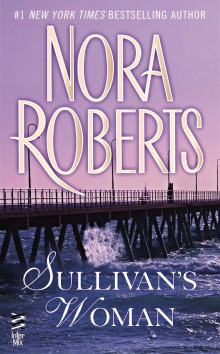 Sullivan's Woman
Sullivan's Woman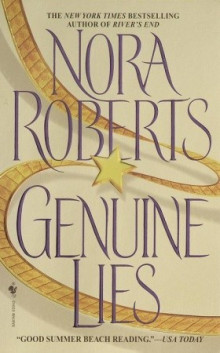 Genuine Lies
Genuine Lies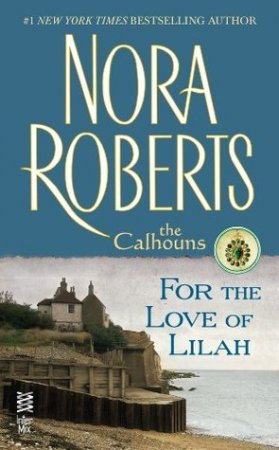 For the Love of Lilah
For the Love of Lilah Gabriel's Angel
Gabriel's Angel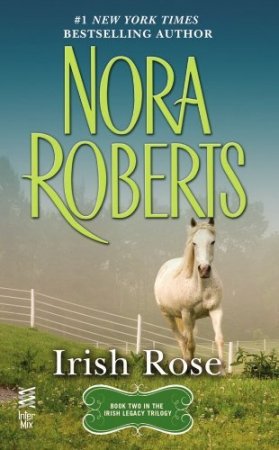 Irish Rose
Irish Rose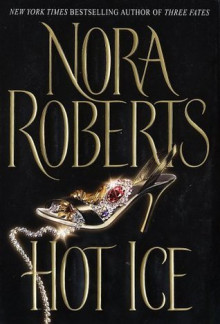 Hot Ice
Hot Ice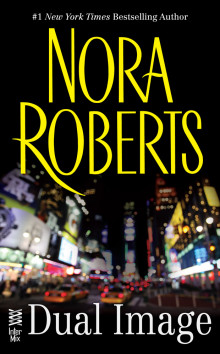 Dual Image
Dual Image Lawless
Lawless Catch My Heart
Catch My Heart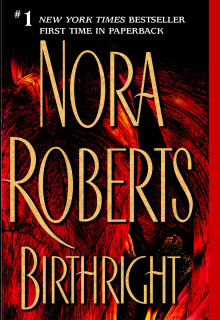 Birthright
Birthright First Impressions
First Impressions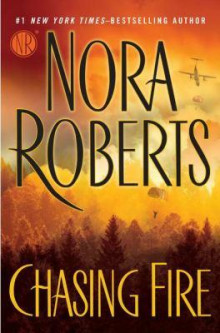 Chasing Fire
Chasing Fire Carnal Innocence
Carnal Innocence Best Laid Plans
Best Laid Plans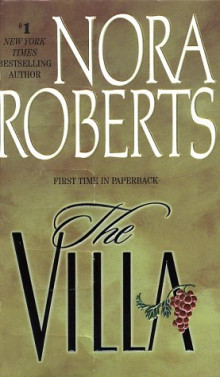 The Villa
The Villa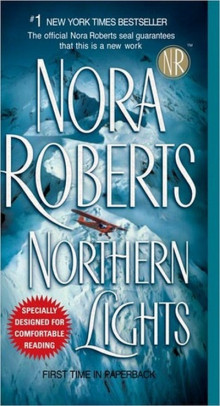 Northern Lights
Northern Lights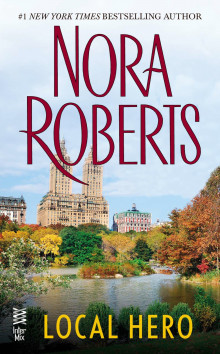 Local Hero
Local Hero Island of Flowers
Island of Flowers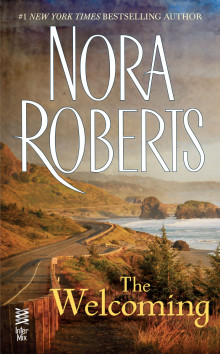 The Welcoming
The Welcoming All I Want for Christmas
All I Want for Christmas Black Rose
Black Rose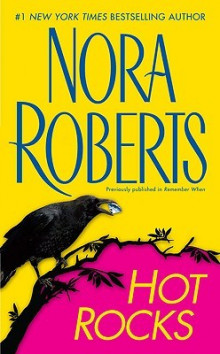 Hot Rocks
Hot Rocks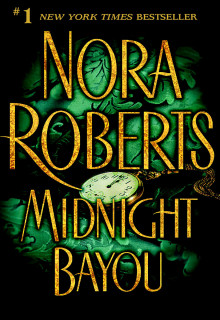 Midnight Bayou
Midnight Bayou The Art of Deception
The Art of Deception From This Day
From This Day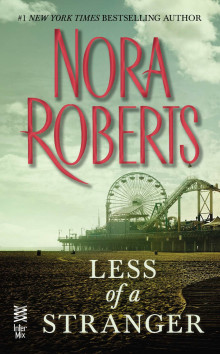 Less of a Stranger
Less of a Stranger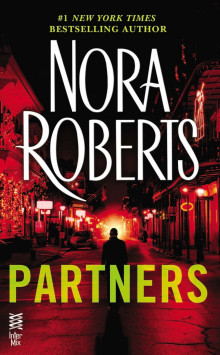 Partners
Partners Storm Warning
Storm Warning Once More With Feeling
Once More With Feeling Her Mother's Keeper
Her Mother's Keeper Sacred Sins
Sacred Sins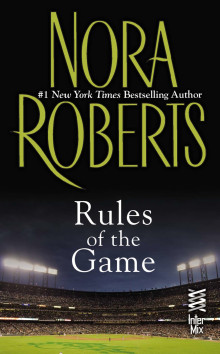 Rules of the Game
Rules of the Game Sanctuary
Sanctuary Unfinished Business
Unfinished Business Cordina's Royal Family Collection
Cordina's Royal Family Collection Dangerous Embrace
Dangerous Embrace One Summer
One Summer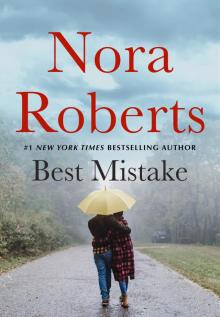 The Best Mistake
The Best Mistake Boundary Lines
Boundary Lines Under Currents
Under Currents The Stanislaski Series Collection, Volume 1
The Stanislaski Series Collection, Volume 1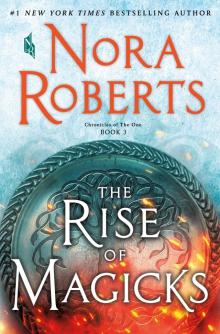 The Rise of Magicks
The Rise of Magicks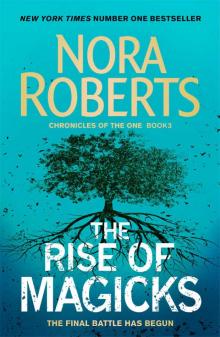 The Rise of Magicks (Chronicles of The One)
The Rise of Magicks (Chronicles of The One) The Awakening: The Dragon Heart Legacy Book 1
The Awakening: The Dragon Heart Legacy Book 1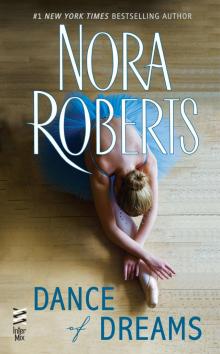 Dance of Dreams
Dance of Dreams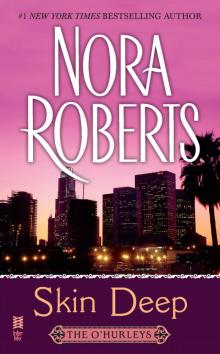 Skin Deep: The O'Hurleys
Skin Deep: The O'Hurleys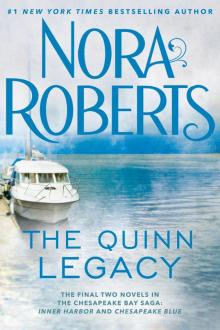 The Quinn Legacy: Inner Harbor ; Chesapeake Blue
The Quinn Legacy: Inner Harbor ; Chesapeake Blue![[Chronicles of the One 03.0] The Rise of Magicks Read online](http://i1.bookreadfree.com/11/chronicles_of_the_one_03_0_the_rise_of_magicks_preview.jpg) [Chronicles of the One 03.0] The Rise of Magicks
[Chronicles of the One 03.0] The Rise of Magicks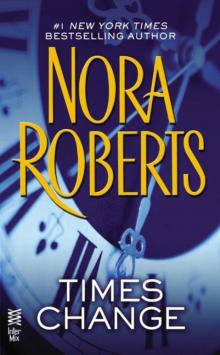 Times Change
Times Change Dance to the Piper: The O'Hurleys
Dance to the Piper: The O'Hurleys Christmas In the Snow: Taming Natasha / Considering Kate
Christmas In the Snow: Taming Natasha / Considering Kate Waiting for Nick
Waiting for Nick Summer Desserts
Summer Desserts Dream 2 - Holding the Dream
Dream 2 - Holding the Dream The Novels of Nora Roberts, Volume 2
The Novels of Nora Roberts, Volume 2 In the Garden Trilogy
In the Garden Trilogy Eight Classic Nora Roberts Romantic Suspense Novels
Eight Classic Nora Roberts Romantic Suspense Novels Best Laid Plans jh-2
Best Laid Plans jh-2 From the Heart
From the Heart Holiday Wishes
Holiday Wishes Dream 1 - Daring to Dream
Dream 1 - Daring to Dream Second Nature
Second Nature Summer Pleasures
Summer Pleasures Once Upon a Castle
Once Upon a Castle Stars of Mithra Box Set: Captive StarHidden StarSecret Star
Stars of Mithra Box Set: Captive StarHidden StarSecret Star Impulse
Impulse The Irish Trilogy by Nora Roberts
The Irish Trilogy by Nora Roberts The Pride Of Jared Mackade tmb-2
The Pride Of Jared Mackade tmb-2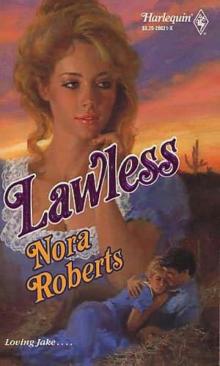 Lawless jh-3
Lawless jh-3 Taming Natasha
Taming Natasha Endless Summer
Endless Summer Bride Quartet Collection
Bride Quartet Collection Happy Ever After tbq-4
Happy Ever After tbq-4 Heart Of The Sea goa-3
Heart Of The Sea goa-3 Search for Love
Search for Love Once upon a Dream
Once upon a Dream Once Upon a Star
Once Upon a Star Dream Trilogy
Dream Trilogy Risky Business
Risky Business The Novels of Nora Roberts, Volume 3
The Novels of Nora Roberts, Volume 3 Dream 3 - Finding the Dream
Dream 3 - Finding the Dream Promises in Death id-34
Promises in Death id-34 The Novels of Nora Roberts, Volume 4
The Novels of Nora Roberts, Volume 4 The Perfect Hope ib-3
The Perfect Hope ib-3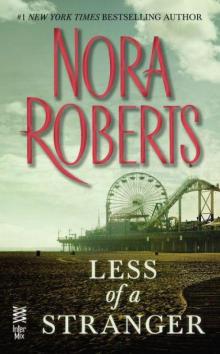 Less than a Stranger
Less than a Stranger Savour the Moment: Now the Big Day Has Finally Arrived, It's Time To...
Savour the Moment: Now the Big Day Has Finally Arrived, It's Time To... Convincing Alex
Convincing Alex Bed of Roses tbq-2
Bed of Roses tbq-2 Savour the Moment tbq-3
Savour the Moment tbq-3 Lessons Learned
Lessons Learned Key Of Valor k-3
Key Of Valor k-3 Red lily gt-3
Red lily gt-3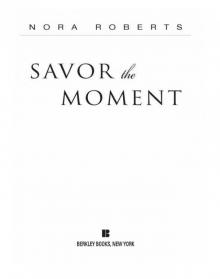 Savor the Moment
Savor the Moment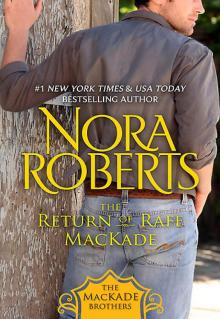 The Return Of Rafe Mackade tmb-1
The Return Of Rafe Mackade tmb-1 For The Love Of Lilah tcw-3
For The Love Of Lilah tcw-3 Black Rose gt-2
Black Rose gt-2 Novels: The Law is a Lady
Novels: The Law is a Lady Chesapeake Bay Saga 1-4
Chesapeake Bay Saga 1-4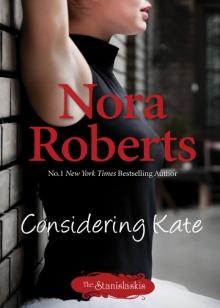 Considering Kate
Considering Kate Moon Shadows
Moon Shadows Key of Knowledge k-2
Key of Knowledge k-2 The Sign of Seven Trilogy
The Sign of Seven Trilogy Once Upon a Kiss
Once Upon a Kiss The Novels of Nora Roberts, Volume 5
The Novels of Nora Roberts, Volume 5 Suzanna's Surrender tcw-4
Suzanna's Surrender tcw-4 The Quinn Brothers
The Quinn Brothers Falling for Rachel
Falling for Rachel Brazen Virtue
Brazen Virtue Time Was
Time Was The Gallaghers of Ardmore Trilogy
The Gallaghers of Ardmore Trilogy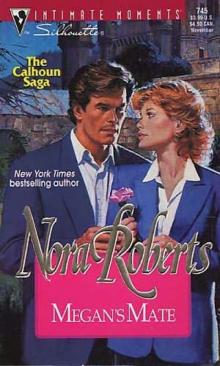 Megan's Mate tcw-5
Megan's Mate tcw-5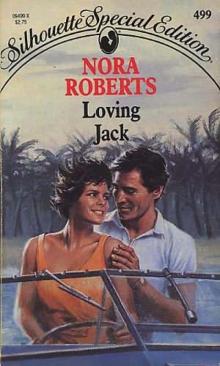 Loving Jack jh-1
Loving Jack jh-1 Rebellion & In From The Cold
Rebellion & In From The Cold Blue Dahlia gt-1
Blue Dahlia gt-1 The MacGregor Grooms
The MacGregor Grooms The Next Always tibt-1
The Next Always tibt-1 The Heart Of Devin Mackade tmb-3
The Heart Of Devin Mackade tmb-3 The Novels of Nora Roberts Volume 1
The Novels of Nora Roberts Volume 1 Treasures Lost, Treasures Found
Treasures Lost, Treasures Found Nora Roberts's Circle Trilogy
Nora Roberts's Circle Trilogy The Key Trilogy
The Key Trilogy The Fall Of Shane Mackade tmb-4
The Fall Of Shane Mackade tmb-4 A Will And A Way
A Will And A Way Jewels of the Sun goa-1
Jewels of the Sun goa-1 Luring a Lady
Luring a Lady